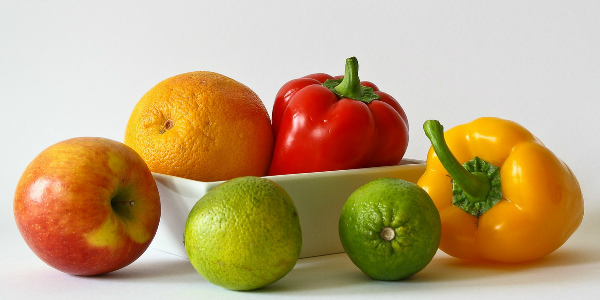Healthy eating in Singapore: What you need to know
The recent Christmas and New Year’s festivities have no doubt been a time for most people to forget about the calories and simply eat and drink to their heart’s content. But now that it’s 2017, it’s time to make some healthy resolutions, and one key healthy lifestyle change to take on this year is the adoption of a healthier diet.
Singapore has seen a progressive shift towards increasingly sedentary lifestyle patterns and hiking obesity rates – a trend that is also observable in most developed and developing countries around the world. Driven by the need to boost the health of Singaporeans, the Health Promotion Board (HPB) has been initiating continuous efforts to shift eating habits and steer Singaporean residents toward picking healthier meal options, both at home and when eating out.
This week’s article sheds light on the advantages of healthy eating, healthy Singaporean meal options, and a few other things you can do to maintain good health.
Recognizing the importance of healthy eating
Healthier eating promotes a myriad of attractive health benefits, chief among them being:
Weight control
Focusing on eating foods with high nutritional value and minimizing your intake of unhealthy saturated and trans fats, sugar and salt, can help maintain a healthy body weight and significantly lower your risk of obesity. We all need calories for energy, but we need to derive our calories from nutritious foods and avoid ‘empty’ calorie foods with little to no nutritional value.
Boost your mood
Countless studies have illuminated the positive connection between healthy food and its benefits on improving your overall mood and mental wellbeing. Foods high in antioxidants (e.g. dark chocolate and blueberries) can help boost the ability of existing brain cells to communicate with each other, and also encourage the generation of neurons – thus improving overall cognitive functioning.
Combating diseases
There are a number of ways that healthy eating can combat diseases, for example:
- Lowering your intake of sugar can significantly reduce your risk of developing type 2 diabetes.
- Reducing your intake of cholesterol can promote heart health, and reduce your risk of heart and coronary artery disease.
- Eating Potassium rich foods can help maintain healthy blood pressure levels.
6 tips for a more balanced diet
An article published by the Singaporean HPB highlights 6 simple strategies for a balanced and nutrition rich diet. These include:
HPB guidelines on serving recommendations per food group
Eating a well-balanced diet that provides the right amount of nutrients you need. The HPB also has a handy guideline on recommended serving sizes per food group:
- 5-7 servings per day of brown rice and wholemeal bread
- 2 servings of fruit
- 2 servings of vegetables
- 2-3 servings of meat and/or other sources of protein (e.g. lentils, eggs, milk)
Eat more whole-grain foods
Eating more whole-grain foods, as opposed to refined grains such as white rice or white bread. Refined grains have gone through processing, which removes a lot of the nutrients that whole-grains offer.
Eat more fruits and vegetables
This food group is high in vitamins, minerals and fibre. Try opting for more whole fruits rather than juices, and remember not to overcook your vegetables.
Eat enough protein
Eat enough protein, and try to aim for sources of protein with lower levels of fat and cholesterol.
Choose healthier oils
Consumer healthier oils (e.g. coconut oil) and try to avoid oils with high levels of trans and saturated fatty acids.
Lower your alcohol intake
Try to minimize or avoid alcohol intake – Most types of alcohol (e.g. beer) are high in calories. Try limiting your alcohol intake to no more than 2 drinks per day (for women), and 3 drinks per day (for men).
Healthy Singaporean dishes
As one of Asia’s most popular culinary capitals, Singaporean cuisine is diverse, and derived from multiple ethnic origins including Chinese, Malay, and Indian. But is Singaporean food healthy? When thinking about typical Singaporean dishes, the first dishes that often come to mind are popular hawker foods laksa, nasi lemak, and Indian rojak – all of which are high in calories and salt content.
Of course, it’s fine to indulge every once in awhile, but it’s also important to aim for healthier meal choices on a regular basis. Luckily, there are several popular Singaporean dishes that tick all the right boxes in terms of being both nutritious and incredibly tasty.
Thunder tea rice
Thunder tea rice, also known as “Lei Cha”, is a bowl of rice served with a range of vegetables, tofu and nuts, and further accompanied with a bowl of soup made of peanuts, herbs and green tea. Not only is this dish flavourful, it’s low calorie (around 430 calories per serving) and cholesterol content makes it ideal for weight management and body detoxification. To make this dish even healthier, opt for brown rice instead of white.
Sliced fish soup
Sliced fish soup, as the name suggests, is a bowl of fish broth served with vegetables and sliced pieces of fish. It’s only about 180 calories per serving, and is perfect for weight and blood cholesterol level management due to its low saturated fat and cholesterol content. One thing to be aware of is that some food stalls and restaurants may serve this dish with flavour enhancers or deep fried fish, so it’s best to double check that you’re eating the healthy version.
Teochew porridge
Teochew porridge is a bowl of rice congee served with a few side dishes of your choice – the most popular of which being steamed or fried fish, minced pork, tofu, and steamed or stir-fried vegetables. Its low fat content, high protein and accompaniment of vegetables make it a very well-balanced meal, especially when you choose your side dishes well and avoid going for salty and deep fried options.
Additional tips for maintaining a healthier lifestyle
To improve your overall good health and wellbeing, choosing healthier meal options is definitely an important habit to maintain, but for maximum health benefits, this should also be combined with a range of other healthy habits, such as:
Exercising
Exercising regularly is a great way to control weight, combat a range of diseases (e.g. heart conditions), and boost energy levels. The right type of exercise will depend on the person. For example, some people may prefer going to the gym (check out our article on gym memberships here), and some people may prefer exercising outdoors or joining a sports team. The best way to stick to your exercise routine is finding something that you actually enjoy doing.
Getting enough sleep
It cannot be stressed enough how important a good night’s sleep is for your body, especially due to its restorative benefits. When you’re sleeping, your body undergoes several processes to repair body tissues, metabolize sugar and fat, and re-energize you for the following day. An article on Huffington Post suggests that adults need at least 7 hours of sleep every day.
Don’t forget health insurance
While health insurance doesn’t directly make you healthier, many plans include a range of preventative benefits and coverage for essential checkups, so that any health conditions you may have is identified early on before it develops into a more serious or lifelong disease. If you’d like to have a chat about securing health insurance, be sure to contact one of our insurance experts today!
- The Pros and Cons of the Singapore Healthcare System - February 27, 2023
- Social fitness: Why you should consider embracing it - February 6, 2023
- Singapore launches new M-SEP scheme allowing firms to hire more S-pass and work permit holders - January 26, 2023






Comments
2 Comments
[…] Healthy eating in Singapore: What you need to know (January […]
[…] obese as adults. These alarming figures all point to the need for children to start developing healthy lifestyle habits at a young […]
Comments for this post are closed.